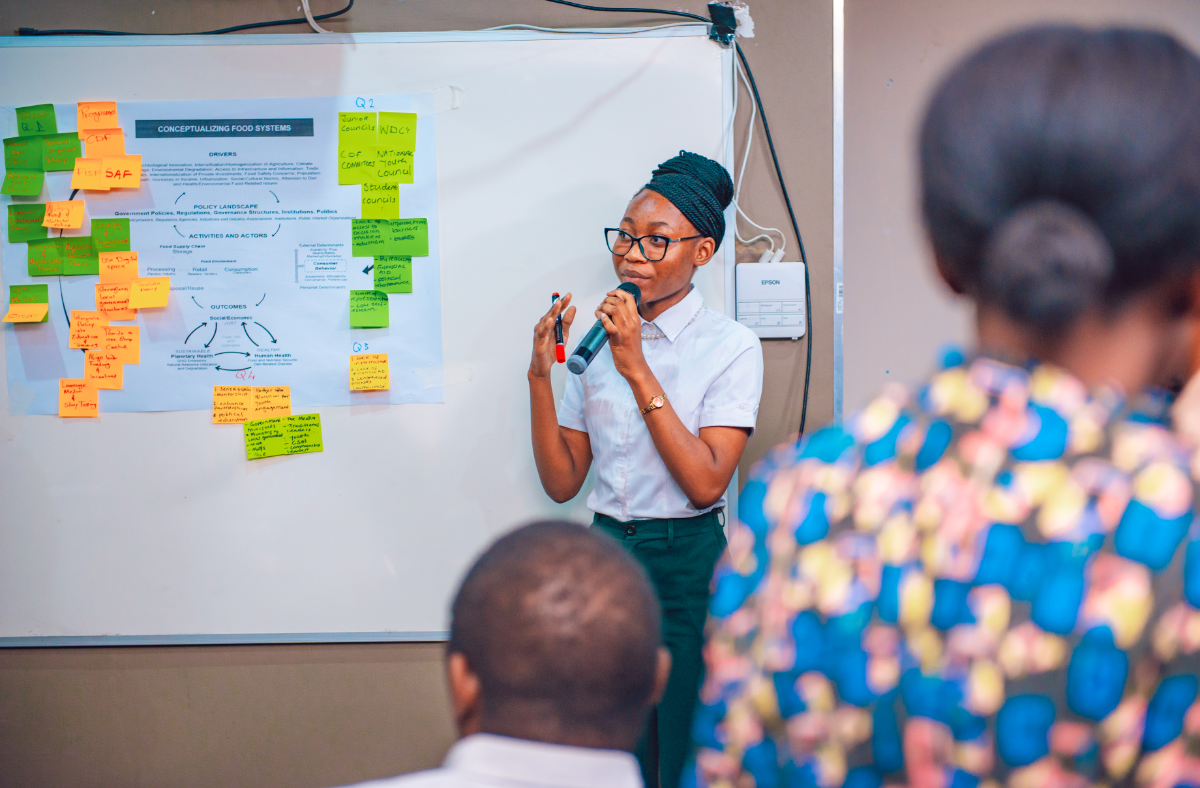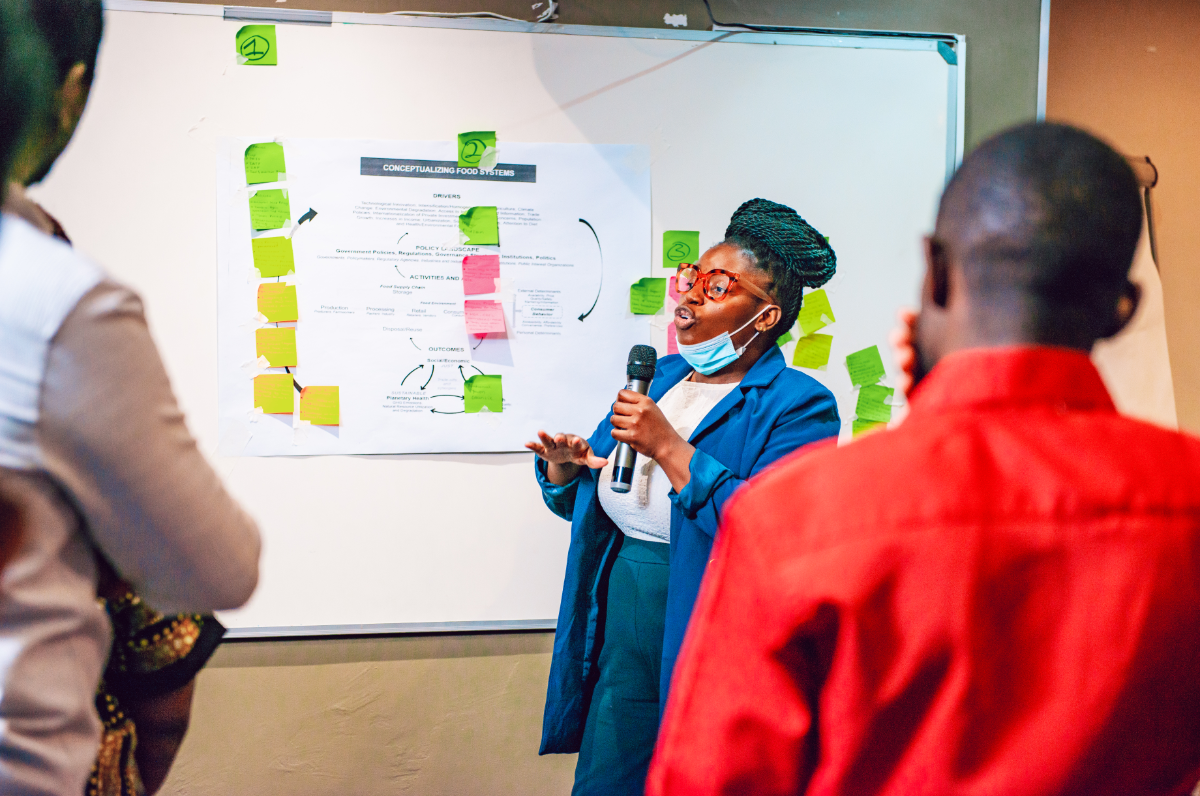Organized by FAO Zambia and ICLEI Africa, with active participation from YPARD Zambia, the session marked a pivotal moment in building youth capacity to influence food systems governance.
This wasn’t just another training—it was a shift in mindset. Following a series of engagements in agri-food systems governance dialogues and consultations that exposed a gap in youth capacity to effectively engage decision-makers, young leaders came together to move from “What is advocacy?” to “How do we make our advocacy more targeted, meaningful, and influential?”
%20zambia%20cr.png)
Participants dove deep into the fundamentals of advocacy—learning how to craft compelling messages, identify key stakeholders, and design campaigns that speak directly to the challenges they face. Group activities encouraged collaboration, creativity, and bold thinking.
They explored Zambia’s policy-making process—from issue identification to policy formulation, adoption, and evaluation—and learned how to engage decision-makers such as Parliament through caucuses, petitions, committees, position papers, opinion pieces, and public dialogue.
The highlight? Youth teams pitched advocacy plans and received feedback to simulate real-world engagement with Lusaka City Council and other decision-makers. These plans addressed barriers such as limited access to productive resources, systemic market exclusion, low governance participation, and lack of technical know-how. Their proposed solutions centered on policy reform, inclusivity, climate consciousness, and digital transformation.
Sussana Phiri, YPARD Zambia Country Representative, shared:



William, from Tisaleme Women and Youth Cooperative, added: "Before this workshop, advocacy felt like something distant—something only experts or politicians did. But today, I learned that my voice matters, and I have the ability to advocate for better and overcome adultism among other challenges."
Youth participants gained a deeper understanding of how policy shapes the agri-food ecosystem—determining resource allocation, regulating markets and land use, influencing innovation, and creating opportunities for youth-led agribusiness and green jobs.
The workshop concluded with a closing circle, reinforcing a shared sense of purpose and strengthening the network of youth advocates committed to shaping Zambia’s agri-food future.
This is just the beginning. With sharpened skills and a united voice, Zambia’s youth are ready to lead the charge for inclusive, resilient and climate-smart food systems.

Other Youth-Led initiatives present included: Junior Mayor Initiative, CUESA, Greenbelt Energy, Sombo’s Food and Nutrition Ltd, CAYACC, Umwana Foundation, WEAC, CSO-SUN, Natwange Cooperative, Tisaleme Women and Youth Cooperative, WFF Zambia, Urban Ventures and Hydrangea.
For YPARD Zambia, this workshop reaffirmed our core mission: to empower young professionals in agriculture to lead, influence and innovate. It demonstrated that when youth are equipped with the right tools, knowledge and platforms, they don’t just participate—they shape the conversation.
This moment signals a shift from passive engagement to active policy influence, where youth are not only advocating for change but co-creating the systems that govern land, food and livelihoods. It also strengthens YPARD’s role as a connector—linking grassroots energy with institutional processes and amplifying youth-led solutions across Zambia and beyond.
As we move forward, YPARD Zambia remains committed to:
This workshop by FAO Zambia and ICLEI Africa was not the end—it was a launchpad. The seeds of advocacy have been planted, and YPARD alongside other youth networks will continue to nurture them into bold, transformative action.